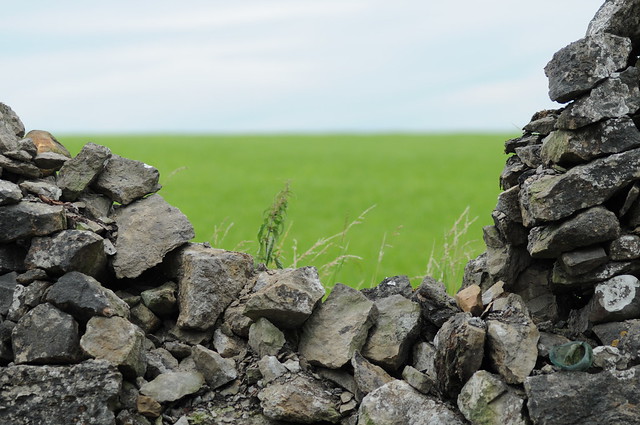Revised Common Lectionary Reflection, Fifth Sunday of Easter, Year C
May 19, 2019
Lessons: Acts 11:1-18; Psalm 148; Revelation 21:1-6; John 13:31-35
Theme: God’s faithful and generous people are participants in a new order based on Jesus’ radical love and wide welcome.
Key Scripture: If then God gave them the same gift that he gave us when we believed in the Lord Jesus Christ, who was I that I could hinder God? – Acts 11:17
Preaching/Teaching Reflection
 Have you heard enough about walls and division in the news of late? It seems every day there’s new talk about personal rights, keeping people out, and drawing lines and building walls. Even in the church, and sometimes especially in the church, we draw lines in the theological sand and build walls of resistance to change and more inclusion. What motivates such behavior? I’m sure there’s plenty of psychology and neuroscience to quote, but perhaps we can boil it all down to fear, a scarcity mindset, and ego. You know, all that messy human stuff that we all deal with to varying degrees.
Have you heard enough about walls and division in the news of late? It seems every day there’s new talk about personal rights, keeping people out, and drawing lines and building walls. Even in the church, and sometimes especially in the church, we draw lines in the theological sand and build walls of resistance to change and more inclusion. What motivates such behavior? I’m sure there’s plenty of psychology and neuroscience to quote, but perhaps we can boil it all down to fear, a scarcity mindset, and ego. You know, all that messy human stuff that we all deal with to varying degrees.
American poet Robert Frost took on the subject of the human tendency toward division in his poem “Mending Wall.” You can access the entire poem here, but the line most often quoted (and quite often misinterpreted) is “Good fences make good neighbors.” Frost is pointing out the irony and folly of this line of thinking; after all, relationship is what makes good neighbors—and good disciples.
This week’s lessons from Acts and John’s gospel point to that truth. The way of Jesus is the way of love AND the way of breaking down barriers and drawing wider circles of inclusion. Jesus is trying to prepare his closest disciples for life and ministry after he will no longer be among them as they know and see him at that last supper. He gives them a new commandment, a commandment that we are prone to sentimentalize and reduce to camp songs and Pinterest art projects. “Just as I have loved you, you also should love one another,” he says.
When we ponder Jesus’ actions among his disciples—his willingness to submit to a political insurrectionist’s death at the hands of the state, and his willingness to love and love and love some more, even beyond death—then we begin to comprehend the radical nature of this love. Then, and only then, can we begin to understand how we should love one another. It’s by this radical, against-the-cultural-and-political-grain-and-gain kind of love that people will know that we are disciples of the Christ. We can write all the flowery missives and spout platitudes until we’re blue in the face, but without this kind of love that Jesus teaches, we are nothing. Paul says it clearly in chapter thirteen of his first letter to the church at Corinth.
 This kind of real, radical, big love changes things. It’s the key that opens minds, the warmth that softens hard hearts, the light that illumines the dark places, the hammer that takes down walls and the cleanser that erases lines. The love of Christ is truly what we need to cultivate and nourish our congregations, communities, and all our relationships. Surprising, often unexpected, and always accompanied by the Spirit, this love has been changing lives since Peter reported in love and faith how God broke down barriers and opened his mind to welcome outsiders into the way of Jesus. After all, he tells the Jerusalem leaders, “Who was I that I could hinder God?”
This kind of real, radical, big love changes things. It’s the key that opens minds, the warmth that softens hard hearts, the light that illumines the dark places, the hammer that takes down walls and the cleanser that erases lines. The love of Christ is truly what we need to cultivate and nourish our congregations, communities, and all our relationships. Surprising, often unexpected, and always accompanied by the Spirit, this love has been changing lives since Peter reported in love and faith how God broke down barriers and opened his mind to welcome outsiders into the way of Jesus. After all, he tells the Jerusalem leaders, “Who was I that I could hinder God?”
Yes, “something there is that doesn’t love a wall.” Let’s bring them down in the name of Christ’s amazing and radical love. Thanks be to God for unbinding us from our fear, egos, and scarcity mindset, or at least for setting us on that beloved course. We are, after all, works in progress caught up in the grip of this amazing big love.
In Worship
Invite congregants today to look for the barriers and walls that prevent full inclusion and participation in the life of your faith community. Some of them may be physical barriers that keep disabled children of God from coming to the table or from sitting anywhere in the worship space. Some may be held in closed minds and hardened hearts where there is fear of those who are different. Tradition may be a barrier that keeps children and youth from fully participating. The very structure of your physical plant may represent a barrier to the community outside your walls.
Make a list of these barriers/walls and commit to pray about them for 40 days. Invite congregants to offer ideas and suggestions that result from their prayers. Then, do something! Adopt or implement an idea or suggestion and start breaking down and opening up.
With Youth
Jesus commands his followers to love one another as he has loved them. It’s a tall order–both in the first century and now. Dr. Cornel West, in a sermon at Howard University in 2011, said that “justice is what love looks like in public.” He has also been quoted “To be a Christian is to live dangerously, honestly, freely – to step in the name of love as if you may land on nothing, yet to keep on stepping because the something that sustains you no empire can give you and no empire can take away.” Invite youth to ponder what it looks like to show Christ-like love in their own lives. What kinds of decisions, choices, and dilemmas might they face in following this commandment? What’s at stake if we don’t follow this commandment? Either provide some good public examples of folks who live and lead from this center of Christ-like agape love or let youth identify some individuals they think live from a place of love.
With Children
This week’s focus verse is Psalm 148:12-13 – Young men and women, old and young together! Let them praise the name of the LORD, for his name alone is exalted; his glory is above earth and heaven.
What does it mean to “praise”? According to the Oxford English Dictionary, it means 1) express warm approval or admiration of, and 2) Express one’s respect and gratitude (towards a diety), especially in song.
Invite the children to think about how they show their respect and gratitude toward God. Affirm all answers. Then tell them that the psalm says all of creation praises God. How does snow praise God? A cow? A mountain? We praise God by worshiping and singing and by being the very best child of God that we can be.
If you’re feeling adventurous, finish with a rousing version of the old song “Praise Ye the Lord.” You can find the lyrics here. Be sure to have the entire congregation stand each time you sing “Praise ye the Lord.” Finish with a short prayer of praise and thanksgiving.
Weekly Stewardship Bulletin Insert
Love wins! Not sure about it? Try it. Steward God’s amazing love by giving it away, lavishly and regularly. Don’t be afraid there’s not enough to go around because you can’t “out-love” God.
Stewardship at Home
How can you love as Jesus loves you? This week spend some time in prayer and conversation with family and friends about ways to live a life of Christ-like love toward others. How does living from a place of love affect your purchases and use of resources, your interactions with other people, and, in fact, every decision you make? If you have children at home be sure to involve them in the discussion and activities.
2016 Reflection: https://www.stewardshipoflife.org/2016/04/the-joy-of-new/
Photos: Steven Lilley, Peter Tkac, and David Goering. Creative Commons usage license. Thanks!
Note: Reprint rights granted to congregations and other church organizations for local, nonprofit use. Just include this note: “Copyright (c) 2019, Rev. Sharron Blezard. Used by Permission.” Other uses, please inquire: thewritelife@hotmail.com.




Leave a Reply